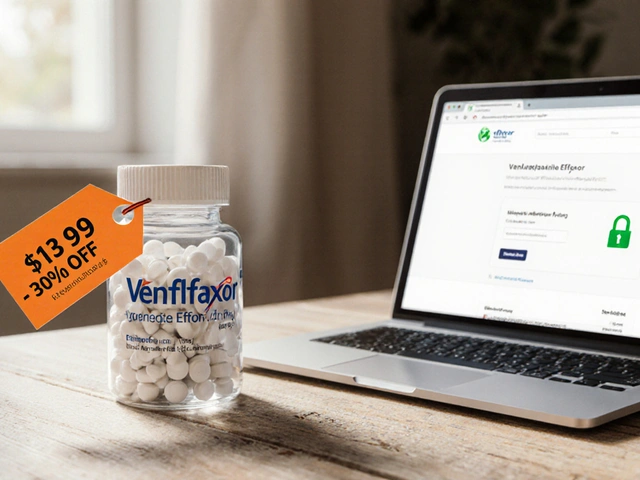Imodium: What It Is and How It Stops Diarrhea
If you’ve ever been stuck on the toilet all day, you know how miserable diarrhea can be. Imodium, whose generic name is loperamide, is the go‑to over‑the‑counter pill that slows things down. It works by tightening the muscles in your gut so food moves slower, giving your body more time to absorb water. The result? Firmer stools and fewer bathroom trips.
How to Take Imodium the Right Way
First thing: read the label. The standard adult dose is two tablets (or 4 mg) after the first loose stool, then one tablet after each subsequent loose stool. Don’t go over eight tablets in 24 hours. If you’re under 12, check the child‑dose instructions – usually a lower amount based on weight.
Take the tablets with water, not with alcohol or other meds that can cause drowsiness. If you’re still having diarrhea after 48 hours, stop using Imodium and call a doctor. Continuing too long can lead to constipation or a rare condition called toxic megacolon, where the colon swells dangerously.
When Imodium Isn’t the Right Choice
There are a few red flags where you should skip Imodium. If you have a fever, blood in your stool, or severe abdominal pain, those could mean an infection that needs antibiotics, not a gut‑slowing drug. Also, if you have certain health issues – like liver disease, ulcerative colitis, or are pregnant – talk to a healthcare professional before using it.
Some medicines interact with loperamide. Antidepressants called SSRIs, antibiotics like erythromycin, and HIV meds such as ritonavir can raise loperamide levels in the blood, increasing side‑effects. Keep a list of all your meds and share it with the pharmacist.
Common side effects are mild: occasional bloating, mild stomach cramps, or a dry mouth. If you feel extreme dizziness, a fast heartbeat, or severe constipation, stop the drug and get medical help right away.
Imodium is handy for travelers dealing with “traveler’s diarrhea” or for anyone who needs a quick fix after a greasy meal. It’s also useful for people on chemotherapy who get loose stools from meds. Just remember: it treats the symptom, not the cause. If you keep getting diarrhea, there’s probably something else going on that needs attention.
Bottom line: Imodium can be a lifesaver when you need fast relief, as long as you follow the dosing guide, watch for warning signs, and talk to a doctor if you’re unsure. Keep a package at home or in your travel bag, and you’ll be ready the next time your stomach decides to act up.
Imodium Guide: How to Use Loperamide Safely for Diarrhea
Learn what Imodium is, how it works, proper dosing, side effects, and buying tips. A clear, practical guide for anyone dealing with sudden diarrhea.
About
Medications
Latest Posts


Avanafil vs Other ED Drugs: Detailed Comparison with Top Alternatives
By Orion Kingsworth Sep 27, 2025

Imodium Guide: How to Use Loperamide Safely for Diarrhea
By Orion Kingsworth Sep 21, 2025

Wild Thyme vs Common Thyme: Essential Oil Potency, Chemotype Differences, and Health Benefits Unveiled
By Orion Kingsworth Apr 30, 2025

